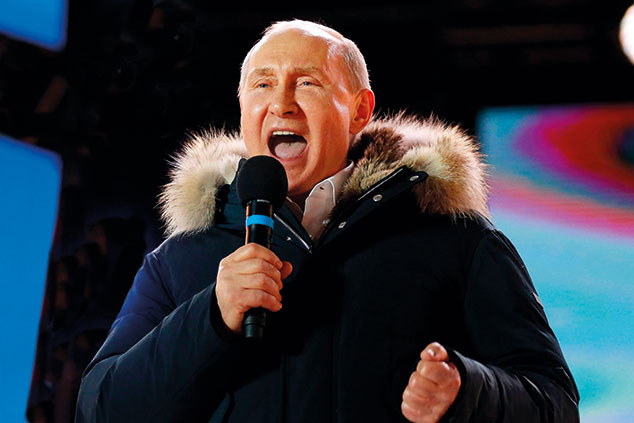
Vladimir Putin has already ruled Russia for 18 years and is set for another six-year term after securing 76% of the vote last week. The “perpetual president” only had to contend with a handful of eccentrics as the opposition leader, Alexei Navalny, had conveniently been barred from the race, says The Economist. Still, “the afterglow of victory will soon give way to a harsher reality”. The economy is stagnating, but Putin shows scant interest in doing anything about it.
The oil-dependent economy has recovered from recession, expanding by 1.5% last year. But reaching the sort of pace typical of other emerging markets will be a tall order, says Richard Barley in The Wall Street Journal.
The central bank says the economy’s growth potential is only 1.5%-2% a year, and that won’t change unless there is structural reform. The population is dwindling and ageing; productivity is poor and state interference in the economy is pervasive.
One crucial step, adds Konstantin Sonin on Project Syndicate, would be to loosen restrictions on foreign investment. In the past ten years the government has deemed over 40 industries “critical for national security” to keep outsiders away. This merely reinforces local oligopolies and reduces Russia’s exposure to foreign money and expertise.
Then there are the counter-measures to EU and US sanctions that followed Russia’s annexation of Crimea. Ditching these “sweeping” trade restrictions would bolster long-term growth. Finally, Russia badly needs a stronger private sector to compete on a global scale. Inefficient and corrupt state-controlled enterprises now account for 75% of GDP.
Handle with extreme care
The long-term prospects for the economy, then, appear inauspicious. Russian stocks are extremely cheap on a mere six times forward earnings, but the market is strictly for the brave. Not only is there very little chance of the government getting its economic act together, but we have also seen that the capricious disregard for the law it has demonstrated abroad applies to the domestic corporate scene too. The stockmarket “is full of low-quality companies and it is difficult to do business there for fear of state ‘involvement’”, Juliet Schooling Latter of Chelsea Financial Services told The Times.
Those tempted to play the Russian market should either opt for a specific Russian fund or go with a general emerging market fund to dilute their risk. Note that regional, eastern European funds won’t do that effectively, as we pointed out earlier this year. They tend to be skewed towards Russia, with around 12 emerging European funds holding between 44% and 64% in the regional heavyweight.